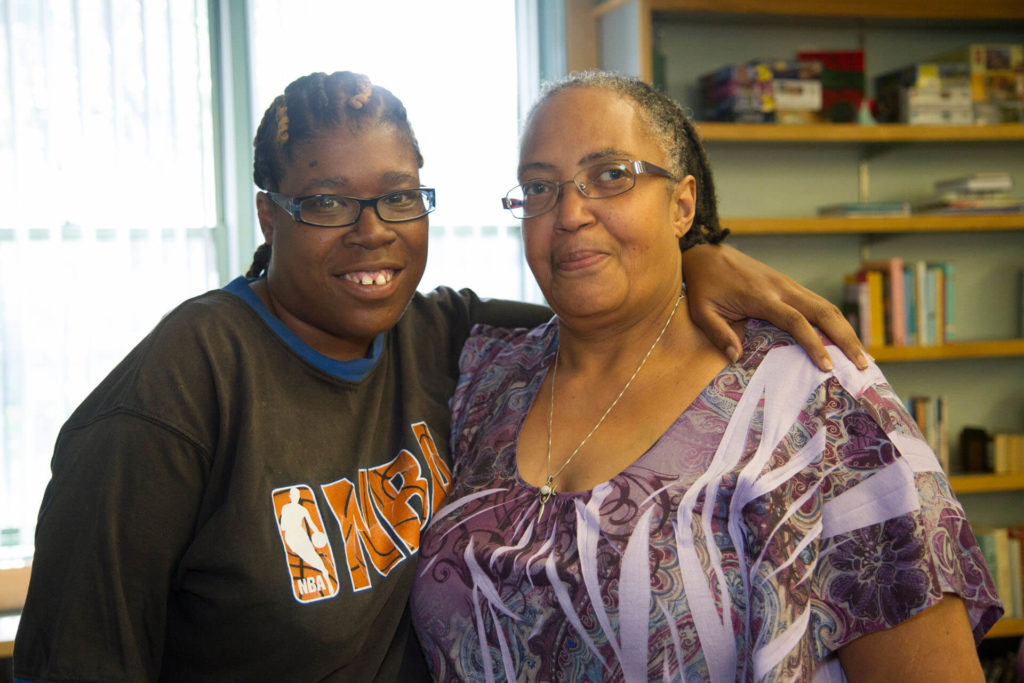What Makes Deborah’s Place Unique
We achieve our mission through a unique model that weaves together supportive housing with a menu of voluntary, evidence-based services. We deliver these services in an intentional environment that recognizes each woman’s strengths and abilities and fosters a sense of belonging and community.
The Deborah’s Place model has evolved over 35 years, using external research and internal data to develop and deliver effective programs and services. We know that women who experience chronic homelessness can overcome complex barriers to housing, health and stability when they have what they need to be successful – access to affordable and appropriate housing, adequate healthcare, regular income and positive social supports.

The Approaches We Value
Harm Reduction
Harm Reduction is an approach that is used to reduce harm and improve quality of life. When applying harm reduction, our team “meets participants where they are at” and works to understand the behaviors that may be placing them at risk of harm. While usually applied to substance use, our staff members apply harm reduction to help participants empower themselves to reduce their risks in all areas of their lives. In addition, we believe that housing is a right and that a person’s housing should not be based on their abstinence from substances.
Trauma Informed Care
At Deborah’s Place we recognize that many of our participants have experienced high levels of trauma due to the trauma of homelessness alone. To ensure that we are knowledgeable, staff members receive training on trauma and its impact on those we serve. Using this knowledge, we create programming that is responsive to participants’ needs and supports control and choice. In addition, we work to promote physical and emotional safety throughout all of our housing programs.
The Evidence-Based Practices* We Apply
Supportive Housing
Research has proven that providing safe, secure housing is the most effective approach to ending homelessness. Housing is paired with intensive case management and other services that guide participants to stability and health. Our Housing First approach means that we work with those who are most in need, accepting them as they are and helping them to become the best they can be.
Motivational Interviewing
Motivational interviewing is way of talking to participants about change and resolving ambivalence. Motivational Interviewing works to mobilize participants’ own motivation and skills to achieve their self-identified goals. Case managers and other staff work closely with women as they move through stages of change and achieve their goals, including finding housing, achieving income or addressing high-risk behaviors.
*Evidence-based practice means using the best, research-proven models in our every-day work.